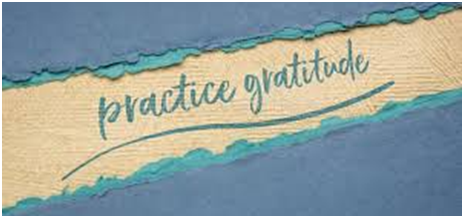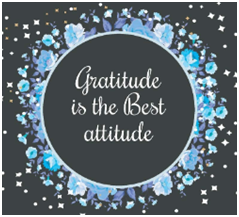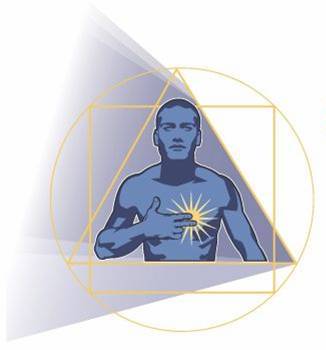The Benefits of Gratitude and How Being Grateful Can Change Your Life
By Robert Rudelic BS, NMT, MES

We have all heard from someone — mother, father, pastor, coach, etc. — that we should be grateful for what we have and that gratitude is a powerful tool in life but ….what does gratitude really mean?
Gratitude is a positive emotion that involves being thankful and appreciative and is associated with many mental and physical health benefits.
When you experience gratitude, you feel grateful for something or someone in your life and respond with feelings and actions of kindness, warmth, and other forms of generosity.
Most people want to feel good about how their life is going and behave in such a way that they continue to feel that way. So why don’t they, what is the biggest obstacle for a person to utilize gratitude in their lives?
A sense of entitlement is perhaps the greatest obstacle to gratitude and being grateful for all one has. “Research has shown that people who are ungrateful tend to have a sense of excessive self-importance, arrogance, vanity, and a high need for repeated admiration and approval,” writes Dr. Robert Emmons in his book Gratitude Works! July 1, 2018.
So, if you want more for your life, be happier, have better relationships, be more productive, build resilience and much, much more —
The Secret is > > > An Attitude of Gratitude!
“Acknowledging the good that you already have in your life is the foundation for all abundance.”
- Having Gratitude makes you happier
- Gratitude makes people like you
- Gratitude makes you healthier
- Gratitude boosts your career
- Gratitude strengthens your emotions
- Gratitude develops your personality
- Gratitude makes you less self-centered
- Gratitude can keep you away from the doctor
It’s common advice to create a gratitude journal and spend a few minutes each day reflecting on the things you are grateful for. Spending just a few minutes each day in this mindset will produce an overall happier and more satisfying mood. You’ll feel grateful more often and the intensity will be stronger and last longer. Gratitude is one of the most powerful tools in your emotional tool box. I believe being grateful in short spurts throughout the day is far more powerful and easier to do.
I also believe that being grateful is a mindset and a skill, and the more aware you are of things to be grateful for and express your gratitude in the moment, the faster you’ll become happier and more grateful.
Gratitude generates social capital: (the networks of relationships among people who live and work in a particular society, enabling that society to function effectively). In two recent studies with 243 total participants, those who were 10% more grateful than average had 17.5% more social capital! Research consistently shows important benefits related to social capital, such as individuals with higher levels of social capital being happier and finding better jobs. Research also shows that people report better health and increased levels of trust in a community as a result of their positive relationships. Having gratitude makes you nicer, more trusting, more social, and more appreciative. As a result, it can help you make more friends, deepen your existing relationships, and even improve your marriage.
Gratitude lowers cortisol, a stress hormone, in your body. Lowered cortisol levels help you avoid many physical and mental side effects of stress and improves overall physical health. Gratitude encourages pro-health behavior like exercising and paying attention to health risks. People who are grateful tend to sleep better and have fewer aches and pains. Expressing gratitude is associated with a host of mental and physical benefits. Studies have shown that feeling thankful can improve sleep, mood and immunity. Gratitude can also decrease depression, anxiety, difficulties with chronic pain and risk of disease. There is even reason to believe gratitude can extend your lifespan.
Gratitude makes you a more effective and positive leader or manager, helps you network, improves your decision making capabilities, increases your productivity, gain respect, and helps you attract accomplished mentors. As a result, gratitude helps you achieve your career goals, as well as making your workplace a more friendly and enjoyable place to be. Having a grateful mindset also changes biology. Positive acts benefit you by releasing oxytocin, a hormone that helps connect people. It is sometimes referred to as the love hormone. Those you connect with will also benefit from your kindness and appreciate the recognition of their efforts. Sharing kindness can make you healthier and happier.
Gratitude reduces feelings of envy, makes for happier memories, lets you experience good feelings, and helps you bounce back from stressful events. Gratitude is a way for you to appreciate what you have instead of always reaching for something new in the hopes it will make you happier or thinking you can’t feel satisfied until every physical and material need is met. Gratitude is the antidote for feeling inadequate and comparing your-self to others. Gratitude helps you focus on what you have instead of what you lack.
It really does, and in potentially life-changing ways. You automatically become more optimistic and less attracted to material things. Gratitude builds emotional resilience by helping you to see the positive things in life and replacing pessimistic thoughts with optimistic ones. The act of gratitude is the act of focusing on the good in life. If you perceive your current life to have more good, you will also believe your future life to have more good. Optimism is correlated with gratitude because those with an optimistic personality are biologically more likely to focus on the good than on the bad and rise above personal disappointment, stress and anxiety, etc. Gratitude greatly increases self-esteem. Research shows that people who are more grateful also tend to have higher self-esteem. When you are aware of how others treat you and the good things they do for you, you develop a stronger sense of your own value.
Gratitude is about acknowledging others and their acts of kindness, resulting in reduced self-focus. It’s most likely why grateful people are admired and respected so much—rather than being occupied with themselves all the time; they show care and interest toward others. Gratitude and humility go hand in hand; they are mutually reinforcing. Expressing gratitude induces humility, and humility increases your capacity for experiencing and conveying gratitude. The more grateful you are, the more likely you are to help others. As your cup overflows, you feel a natural urge to help others.
Gratitude can’t cure cancer but it can strengthen your physiological functioning. Positive emotions improve health unlike the known link between a negative mental state and physical suffering. In a doctor-patient relationship the patient’s belief makes a world of difference as to that person’s health. What a doctor says and what the patient believes may be more closely tied to the patient’s outcome than what the doctor does physically.
If a doctor is warning about possible negative side effects increases the likelihood of the patient experiencing pain or suffering, as research consistently suggests will happen, the leading culprit is the patient’s mental state. Fear or a deep pessimism that they won’t get better can be the underlying enemy to health. The flip-side of the belief coin is the health benefit linked to a positive mental state.
According to a landmark review, positive expectations are associated with better health. Science Daily reported that the reviewers of more than 160 studies on the mind-body connection were shocked by the consistency they saw in the data. Over and over the evidence showed that a person’s positive beliefs are a strong influence for good on their health.
If the root driver of the body’s health, good or bad lies in what’s occupying your mind, it’s important to be much more alert to what’s tugging at you for attention. if you want to improve your health, improve your mind.
Gratitude is a positive emotion. It’s no far stretch that some of the benefits like better coping & management of terminal conditions, faster recovery from certain medical procedures, positive changes in immune system functioning, more positive health behavior, apply to gratitude as well.
In fact, some recent science shows just that — those who engage in gratitude practices have been shown to feel less pain, go to the doctor less often, have lower blood pressure, and be less likely to develop a mental disorder.
“Gratitude is the healthiest of all human emotions. The more you express gratitude for what you have, the more likely you will have even more to express gratitude for.”

• Attitude •
There once was a woman who woke up one morning, looked in the mirror
and noticed she had only three hairs on her head.
‘Well,’ she said, ‘I think I’ll braid my hair today.’
So she did and she had a wonderful day.
The next day she woke up, looked in the mirror
and saw that she had only two hairs on her head.
‘Hmm,’ she said, ‘I think I’ll part my hair down the middle today.’
So she did and she had a grand day.
The next day she woke up, looked in the mirror and noticed
that she had only one hair on her head.
‘Well,’ she said, ‘today I’m going to wear my hair in a ponytail.‘
So she did, and she had a fun, fun day.
The next day she woke up, looked in the mirror and
noticed that there wasn’t a single hair on her head.
‘Yay!’ she exclaimed. ‘I don’t have to fix my hair today!’
• Attitude Is Everything•
Be kinder than necessary – everyone you meet is fighting some kind of battle.
• The Gratitude Exercise Simplified •
Each day, when reflecting on the things you are grateful for; sit quietly and start tapping. Tap each point for 7-10 seconds then change to the next point and keep tapping throughout the exercise. While tapping, start with one thing you are grateful for, state it then state why you are so grateful and elaborate. When finished with the first thing you are grateful for, complete it with a fist pump and passionately say thank you! thank you! thank you! Then move to the next thing you are grateful for. Do this gratitude exercise for 10-15 minutes then spend a few minutes reflecting on what you just did.
This exercise can be done anywhere, anytime you are feeling grateful.





For more information, visit our PowerTapping page.
San Francisco, CA 94107
Contact Us: www.RobertRudelic.com/contact
E-Mail: support@RobertRudelic.com
Tags: mental exhaustion, overwhelm, pissed off, resentful, resentment, stress, worry
Categorised in: Uncategorized


